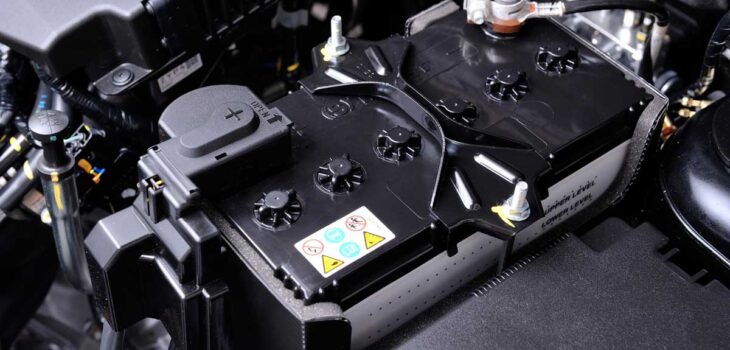 Technology
Technology
How long can a car battery be dead and…
Car batteries play a crucial role in powering your vehicle’s electrical systems and getting the engine running. But like all batteries, they can go flat or die—whether due to disuse, wintry weather, or electrical drain. One of the most frequently asked questions is: How long can a car battery be dead and still be recharged? Additionally, it is important to understand broader car-related issues that can impact performance and reliability. This article explores both.
How Long Can a Dead Car Battery Still Be Recharged?
Generally, a car battery can remain dead for around two to four weeks before it becomes completely unrecoverable, depending on several factors such as battery age, ambient temperature, and state of charge prior to dying. However, this doesn’t mean the battery will bounce back to full health immediately after recharging.
Key Factors That Influence Rechargeability:
Battery Age:
- A new battery (less than three years old) has a much better chance of being revived even after being dead for several weeks.
- An older battery may lose its ability to hold a charge after just a few days of inactivity.
Temperature Conditions:
- Cold temperatures can quickly deplete a battery’s charge and may harm its internal cells over time.
- Hot temperatures can evaporate battery fluids, shortening lifespan.
Depth of Discharge:
- The deeper the battery is discharged (i.e., the lower the voltage), the harder it is to revive.
- A healthy car battery operates around 12.6 volts.
Type of Battery:
- Lead-acid batteries are less tolerant of deep discharge compared to AGM or lithium-ion batteries.
- Some modern batteries have built-in management systems that prevent over-discharge.
Reviving a Dead Battery:
If your battery is dead but not completely damaged, you may be able to recharge it using:
- A trickle charger for 12–24 hours.
- A jump-start, followed by running the engine for 20–30 minutes to allow the alternator to recharge the battery.
However, if the battery is swollen, leaking, or more than 5 years old, replacement is often safer and more cost-effective.
Major Car Problems You Shouldn’t Ignore
Engine Overheating
One of the most serious issues, engine overheating can result from coolant leaks, a broken radiator, or a malfunctioning thermostat. If your temperature gauge spikes or steam comes from under the hood, pull over immediately.
Brake Wear and Failure
Brake pads wear out over time, and ignoring warning signs like squealing noises, soft pedal feel, or grinding can lead to complete brake failure.
Transmission Problems
The transmission is complex and expensive to repair. Warning signs include gear slipping, delayed shifting, burning smells, or transmission fluid leaks.
Check Engine Light
This dashboard warning can signal anything from a loose gas cap to a faulty oxygen sensor. While some causes are minor, others (like engine misfires or catalytic converter issues) can be severe.

Exhaust System Leaks
Leaks in the exhaust system can release harmful fumes, such as carbon monoxide, into the cabin. A louder exhaust sound or a rattling under the car could indicate a problem.
Suspension Issues
Worn shocks or struts affect ride comfort and handling. If your vehicle feels shaky or keeps bouncing after hitting bumps, it could indicate a problem with the suspension that needs attention.
Clogged Air Filters
An old or dirty air filter can reduce engine efficiency and fuel economy. Replacing it is a quick and inexpensive maintenance task that can improve overall performance.
Fuel System Issues
Fuel pump failures or clogged injectors can cause rough idling, difficulty starting, or stalling. Using high-quality fuel and occasionally adding fuel system cleaners can help reduce the risk of these problems.
Tips for Preventing Car Problems
Drive regularly:
Letting a car sit idle for long periods drains the battery and encourages rust or fuel degradation.
Routine maintenance:
Follow your vehicle’s service schedule for oil changes, fluid checks, and filter replacements.
Keep it clean:
Dirt and grime can corrode parts or block airflow. A clean engine bay and undercarriage go a long way.
Listen and feel:
Any unusual noise, vibration, or dashboard light is your car’s way of asking for attention.
Final Thoughts:
A dead car battery doesn’t always mean it’s beyond recovery. If caught early—ideally within a couple of weeks—it can often be recharged and reused. However, once a battery has died multiple times, its ability to hold a charge diminishes significantly, and replacement is usually the smarter move.
Beyond batteries, staying aware of major car problems like overheating, worn brakes, or transmission issues is essential to avoid breakdowns and ensure long-term reliability. Prevention is always cheaper than a cure when it comes to car ownership. With regular care and attention, your vehicle can serve you well for years to come.
Read more blogs at Vibrantlivingblog.









